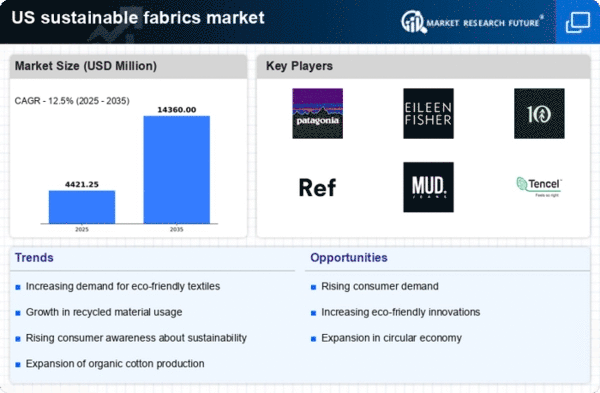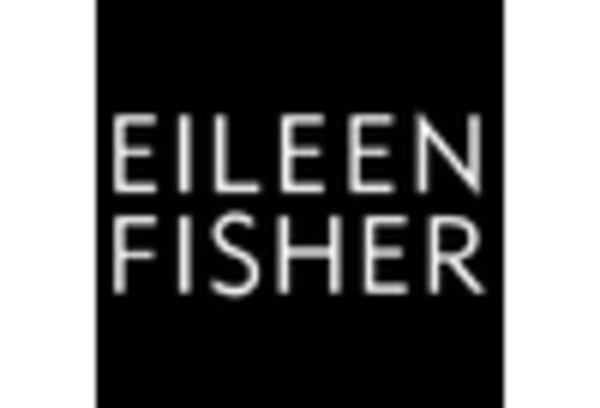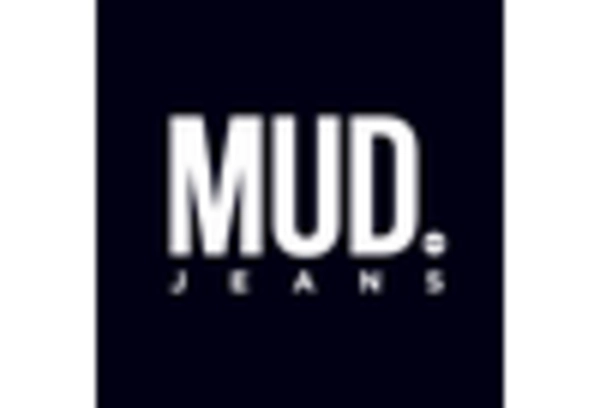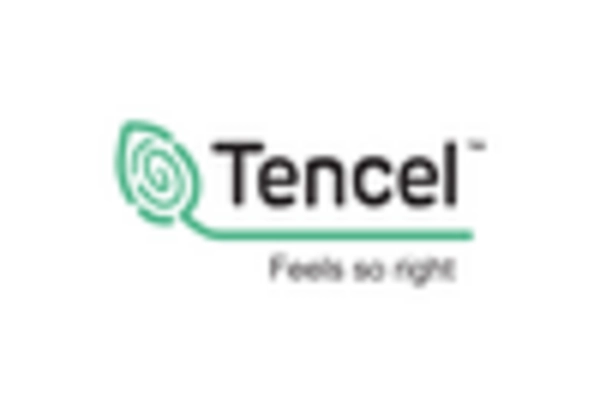The sustainable fabrics market is currently characterized by a dynamic competitive landscape, driven by increasing consumer awareness regarding environmental issues and a growing demand for eco-friendly products. Key players such as Patagonia (US), Eileen Fisher (US), and Reformation (US) are at the forefront, each adopting distinct strategies to enhance their market positioning. Patagonia (US) emphasizes innovation in sustainable materials, focusing on recycled and organic fabrics, while Eileen Fisher (US) prioritizes circularity through its take-back program, which encourages customers to return used garments for recycling. Reformation (US) leverages digital transformation, utilizing data analytics to optimize its supply chain and enhance customer engagement, thereby shaping a competitive environment that increasingly values sustainability and transparency.In terms of business tactics, companies are localizing manufacturing to reduce carbon footprints and optimize supply chains. The market appears moderately fragmented, with a mix of established brands and emerging players. This structure allows for diverse offerings, yet the collective influence of key players like Tentree (CA) and Outerknown (US) is notable, as they push for greater sustainability standards across the industry.
In October Patagonia (US) announced a partnership with a leading textile innovation firm to develop a new line of biodegradable fabrics. This strategic move is significant as it aligns with the company's commitment to environmental stewardship and positions it as a pioneer in the biodegradable fabric segment, potentially attracting eco-conscious consumers.
In September Eileen Fisher (US) launched a new initiative aimed at increasing the use of regenerative organic cotton in its collections. This initiative not only enhances the brand's sustainability credentials but also reflects a broader industry trend towards regenerative agriculture, which could reshape sourcing practices in the fabric sector.
In August Reformation (US) unveiled a new AI-driven tool designed to enhance its inventory management and reduce waste. This technological advancement is crucial as it allows the company to respond more effectively to consumer demand, thereby minimizing overproduction and reinforcing its commitment to sustainability.
As of November the competitive trends in the sustainable fabrics market are increasingly defined by digitalization, sustainability, and the integration of advanced technologies such as AI. Strategic alliances are becoming more prevalent, as companies recognize the need to collaborate in order to innovate and meet consumer expectations. Looking ahead, competitive differentiation is likely to evolve from traditional price-based competition to a focus on innovation, technological advancements, and supply chain reliability, underscoring the importance of sustainability as a core business strategy.
















